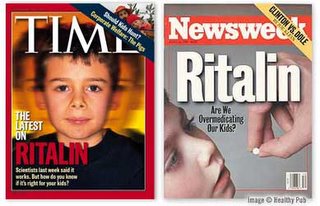
THE news that an Edinburgh academic believes Scottish youngsters are handed out "mind-altering" drugs for hyperactivity when in fact their bad behaviour is nothing more than a natural part of growing up will, I'm sure, have alarmed the thousands of parents whose children are currently taking medication such as Ritalin.
Edinburgh University's Dr Gwynedd Lloyd has said decisions to hand out drugs are often made so that parents don't feel guilty about their unruly children and that there is widespread abuse of drugs such as Ritalin.
In fact, Attention Deficit Hyperactivity Disorder has been a source of contention ever since the term was first adopted by committee at the American Psychiatric Association back in 1987.
As the multi-million-dollar ADHD industry has grown, so has the amount of literature describing fundamental flaws in logic and research and pointing out that claims of a neurobiological origin have never been substantiated.
For example, a debate in the British Journal of Psychiatry in 2004 observed: "Fundamental to the discussion are questions about whether the diagnosis of ADHD actually holds water and what it is that psychiatrists are trying to treat... there are no specific cognitive, metabolic or neurological markers and no medical tests for ADHD".
Ritalin is in fact a Class B drug which has the same pharmacology as cocaine and one can safely assume any parent would have deep concerns about their child taking it - if they are aware of all the facts. But parents are not informed of the continuing division of medical opinion surrounding ADHD and its validity as a diagnostic concept and the nature of the drugs prescribed.
Although many children have been "medically diagnosed" with ADHD, very few if any have been subject to basic procedures and medical tests to establish a correct differential diagnosis - ie finding out what causes the symptoms.
Clearly, many factors influence children's behaviour: poverty, divorce, overcrowded classrooms, nutritional problems and more. It is also true that many factors influence prescription rates for drugs used to influence children's behaviour. The rise in prescriptions rates - last year in Scotland prescriptions were up 11 per cent - reflects an increase of publicity for ADHD as a condition afflicting children, and the number of children so categorised.
ADHD has generated huge profits for the pharmaceutical industry but I would argue this is against a background of poor-quality research, publication bias and payments to some of the top academics in this field. Thus the mainstream dogma on ADHD is contaminated and misleading.
This division of medical opinion is reflected in a wide variation in prescription rates in different localities in Scotland - from 0.5 per cent to 26 per cent - indicating variations in the acceptance of this as a diagnosis by different practitioners or clinics.
The largest meta-analysis study, the results of which were published in September last year by the Oregon Drug Effectiveness Review Project, analysed 2287 pieces of research - virtually every investigation ever done on ADHD drugs - to reach its conclusions: it found no evidence to support the claims about these drugs' safety or the legitimacy of the ADHD diagnosis.
A parent who is not aware of these points cannot be considered sufficiently informed to give legally meaningful informed consent to treatment proposed for their child. And in fact, the GMC requires as a standard of practice that UK medical practitioners obtain informed consent before treatment.
To continue to medicate children as young as two years old with powerful mind-altering drugs is a public health scandal.
To give such drugs to toddlers still in nappies who have not yet attended nursery school and whose brains and central nervous systems are still developing, is nothing more than a form of social control and fascism. Few of us would like to see the word "junkie" attached to any of our children in the illicit sense, yet we are happy to give them mind-altering drugs, whose long-term consequences have yet to be determined.
Is self-control, self-monitoring, self-regulation and good diet, a thing of the past? Will our kids remain the shiny happy people we had hoped for with such medical intervention? Only time will tell but there are those who would prefer to see the psychiatrists and drug companies drugged and institutionalised as a better cure-all than the drugging of children for profit.
By Janice Hills
• Janice Hill runs Overload Network, a support group for parents with hyperactive children
http://news.scotsman.com/opinion.cfm?id=274972006

No comments:
Post a Comment